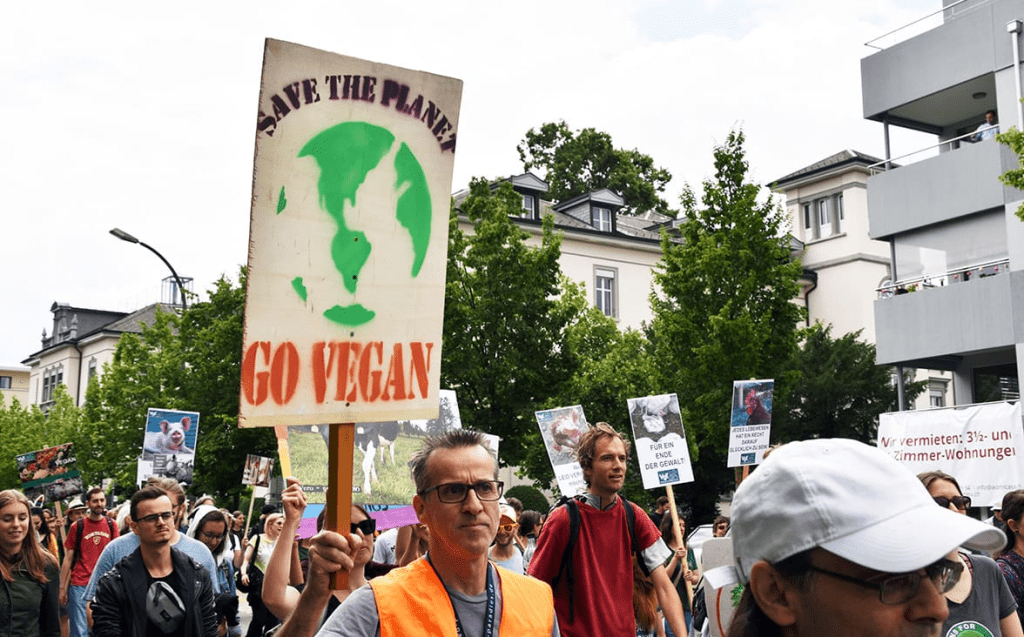Adopting a plant-based diet has long been promoted for its health and environmental benefits. However, fewer people realize that such a dietary shift can also play a significant role in promoting social justice. As the global food system becomes increasingly industrialized, the impacts of animal agriculture extend far beyond the environment and animal welfare; they touch on issues of labor rights, social equity, food access, and even human rights. Transitioning toward plant-based diets not only contributes to a healthier planet and society but also directly addresses various systemic inequalities. Here are four key ways in which a plant-based diet advances social justice.

1. Reducing Exploitation in the Food System
Animal agriculture is one of the largest and most exploitative industries in the world, both for animals and for the workers within it. Farm workers, especially those in slaughterhouses, often face deplorable working conditions, including low wages, lack of healthcare, dangerous environments, and exposure to violence. Many of these workers are immigrants or individuals from marginalized communities who face systematic disenfranchisement.
A shift to plant-based eating can directly combat this exploitation by reducing demand for animal-based products. This, in turn, can help reduce the harmful labor practices that are rampant in factory farms and slaughterhouses. By supporting plant-based food production, consumers encourage the creation of jobs that are more humane and less hazardous, offering a chance to empower vulnerable communities within the food system.
2. Combating Food Insecurity and Inequality
The production of animal-based foods requires vast amounts of resources, including land, water, and energy, often at the expense of the world’s most vulnerable populations. In low-income communities, especially those in developing countries, agricultural resources are frequently diverted toward raising animals for export rather than producing crops that can feed local populations. This imbalance exacerbates food insecurity, as the world’s wealthiest countries consume far more animal-based products than what could be sustainably produced for the global population.
By choosing a plant-based diet, individuals help to free up agricultural resources that can be used for growing food that is accessible and nutritious for all. Plant-based agriculture can also promote food sovereignty, allowing communities to grow and consume their own food, which can alleviate poverty and reduce global hunger. Supporting plant-based foods can shift the focus of agricultural production toward the cultivation of grains, legumes, fruits, and vegetables—foods that are more equitable, sustainable, and nutritionally accessible.
3. Promoting Environmental Justice
The environmental impacts of animal agriculture disproportionately affect marginalized communities, particularly those in low-income or rural areas. Factory farms and industrial animal agriculture often pollute air and water, emitting harmful toxins and greenhouse gases that lead to local environmental degradation. Low-income communities of color are especially vulnerable to the harmful effects of this pollution, with many living in close proximity to factory farms or industrial waste sites.
By choosing plant-based options, individuals can help reduce the demand for industrial animal farming, which is one of the major contributors to climate change, deforestation, and water contamination. Reducing animal agriculture can therefore be seen as an act of environmental justice, as it addresses the systemic environmental harm that disproportionately impacts marginalized communities. Supporting sustainable, plant-based farming methods contributes to a healthier environment for everyone, regardless of socio-economic status.
4. Advocating for Animal Rights and the Ethics of Consumption
Adopting a plant-based diet is not only about personal health; it is also a stance against the exploitation and cruelty faced by animals in factory farms. The industrialized meat, dairy, and egg industries subject animals to extreme confinement, inhumane living conditions, and painful deaths. These animals are often treated as commodities rather than sentient beings capable of experiencing pain and distress.
A plant-based diet acknowledges that animals have intrinsic value and should not be treated as mere tools for human consumption. By shifting away from animal products, individuals take a stand against the injustices faced by millions of animals every year, calling for a more compassionate and ethical food system. This promotes a culture of empathy, where the rights of all living beings—human and non-human alike—are recognized and respected.

A plant-based diet is a powerful tool in advancing social justice. By reducing the demand for animal agriculture, we can address multiple interconnected issues, including the exploitation of workers, food insecurity, environmental degradation, and the ethical treatment of animals. Shifting towards plant-based eating is not just a personal choice; it is a call for a more just, sustainable, and compassionate world. As individuals and as a society, we have the power to influence change—one meal at a time.















































